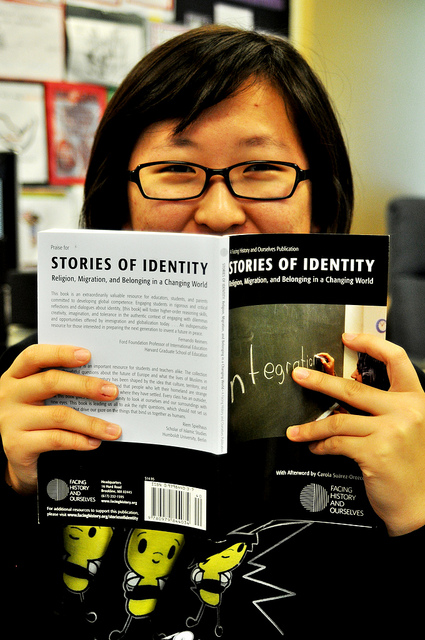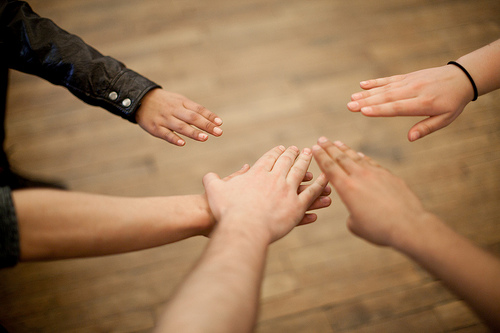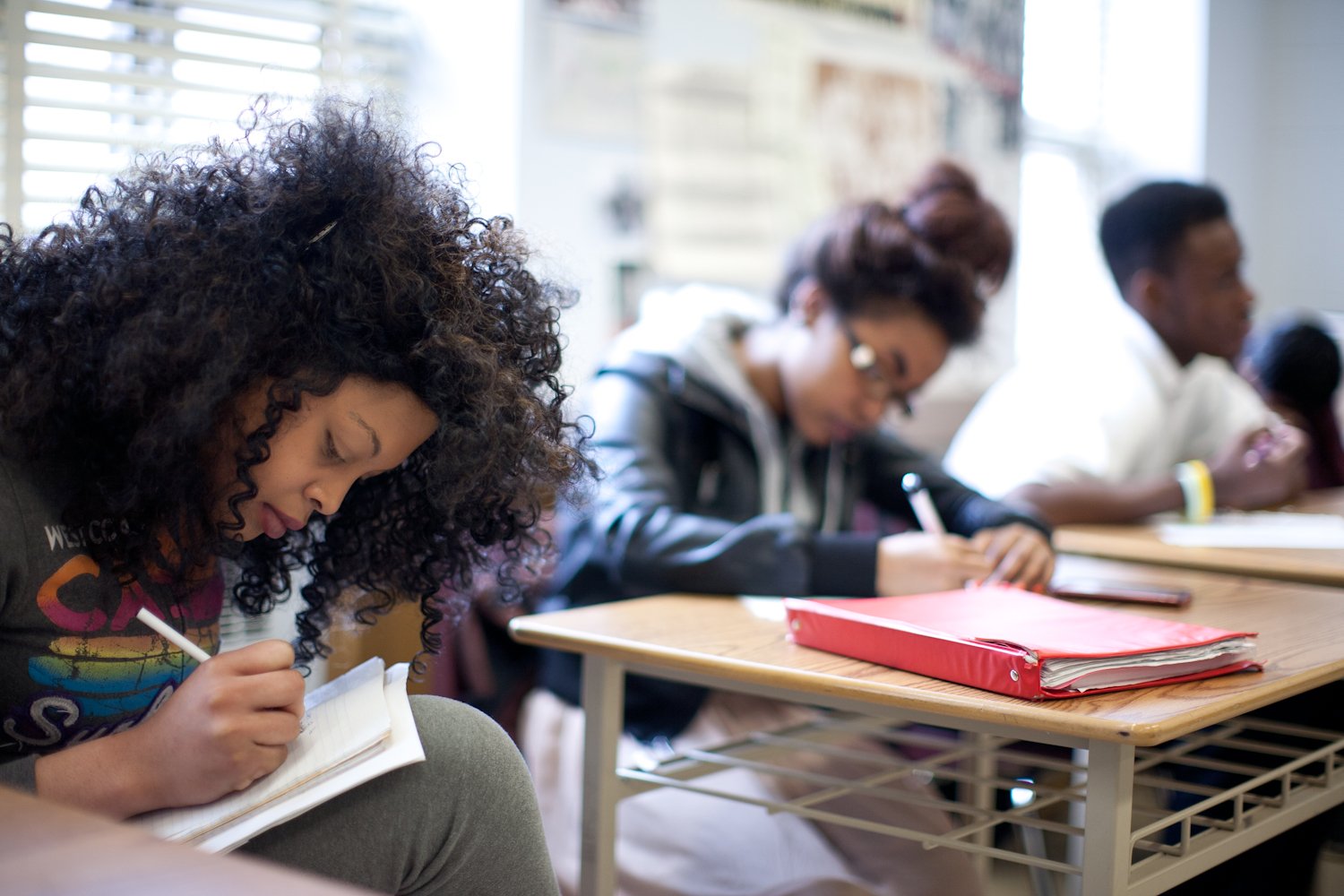For 38 years, Facing History and Ourselves has been empowering young people to examine complex moments in history and understand the transformative power we all possess as human beings. This Giving Tuesday, we are sharing some of the ways Facing History students and teachers around the world are making positive differences. These young people and their educators could not impact their schools and communities without your help.
To reach more students, teachers, and communities just like them this year, we need your help.
Help us make lasting change with just one click: Give this Tuesday and join us in kicking off the giving season!
What story will your gift tell?
Spotlight: China
"[Facing History] really changed the way I was teaching and framing my lessons," says Georgia Barker, a teacher at the Tsinghua International School in Beijing, who took our week-long Holocaust and Human Behavior seminar in 2013. Georgia is one of 39 educators from China who have traveled to our international headquarters in Brookline, Massachusetts to attend in-depth seminars, thanks to generous support from the Facing History China Committee, board members, individuals, and foundations, as part of The China Project, which Facing History launched in 2007 to deepen cross-cultural engagement between our global network of educators and those in China. Each year, we help teachers outside China explore Facing History themes through the lens of Chinese and Chinese American history. At the same time, we work with teachers inside China as they encourage deeper student reflection through our pedagogy. To date, 394 educators have participated in workshops in China.
Resources generated from The China Project include Teaching "Red Scarf Girl" and Becoming American: The Chinese Experience Study Guide, as well as our new guide The Nanjing Atrocities: Crimes of War.
Spotlight: Los Angeles
A few years ago, Los Angeles teacher Elana Goldbaum began to notice that students in her 10th grade history class at Alliance Gertz-Ressler High School, part of the Facing History Innovative Schools Network, were interested in learning more about topics at the heart of her course – topics of identity, gender, and cultural difference. Goldbaum had an idea. What would it look like if part of the school library was designated as a "Facing History section," with books, graphic novels, personal stories from upstanders, and resources on subjects such as race and our universe of obligation?
"We wanted books that would inspire or continue the interests of our students," Goldbaum says. Creating the section would also give students who didn't take Goldbaum's course an opportunity to reflect on Facing History themes such as identity and belonging.
The Facing History section opened in 2012, with support from a Facing History Los Angeles Advisory Board member and City National Bank. Today it helps students at the school consider their own identities and better understand people who might be different from them.
"Ninety-eight percent of our students are Latino, and the majority is first- or second-generation immigrants to this country," Goldbaum explains. "Having access to these personal stories often helps them figure things out about their own identity and connect to the personal stories of others."
Spotlight: Mexico City
"Our goal is to make a difference with other people – to make a united world with other citizens," says Juan Pablo Alberto Palafox Gavito, one of a group of students at the Prepa Ibero high school in Mexico City who researched and built a mobile Holocaust museum that they ultimately took on the road to other campuses across Mexico. Prepa Ibero history teacher and academic coordinator Yves Solis started the project with his students after winning an annual teaching grant from Facing History, established in 2006 to fund projects that transform schools and impact student learning all over the world. The grants, established by Facing History supporters, have provided 261 educators with nearly $300,000 in funding over the past eight years. "The possibility to make a museum is like an alternative – it is creating possibility and allowing other students to consider change," Solis says. "After going through the museum, you will come out and be thinking, 'What can I do for my world today?'"
Spotlight: Canada
In 2012, with support from the TD Bank Group, Facing History Canada began crafting an educational resource for teachers that explores Canada's history of forcing Indigenous Peoples to send their children to Indian Residential Schools miles away from home. The resource, which will be released at the beginning of the 2015 school year, looks at the destruction of identity, culture, and community when a group's language is banned, lost, or becomes endangered. The resource and accompanying professional development will help Canadian teachers and other Facing History educators bring thoughtful conversations about indigenous identity and language into their classrooms.
"TD is proud to partner with Facing History on developing this important resource and contributing to the terrific work they do," says Domenic Natale, vice president of Aboriginal Trust Services at TD Bank Group. "We embrace this opportunity to encourage dialogue in the classroom so students can better understand our history to make better, more informed choices today for a brighter future."
Facing History reaches an estimated 107,000 young people across Canada each year – students who will potentially use this resource to learn local history and become more engaged citizens of the world. And with support for our forthcoming guide, we will reach even more.
Thanks to generous support from people just like you, we've grown our educator network to more than 95,000 teachers. Each year we reach over 3,500,000 students worldwide. With your help, we hope to reach even more in 2015.
On Giving Tuesday, you can support our vital mission with just one click. Your contribution will help us start a new year full of promise and hope for the next generation.




